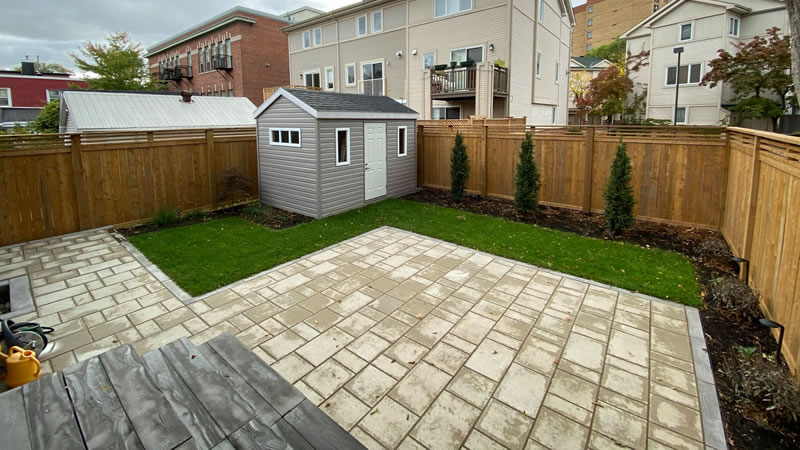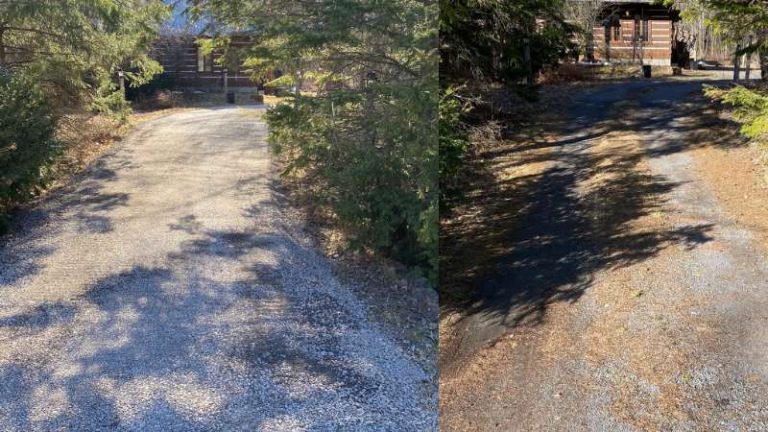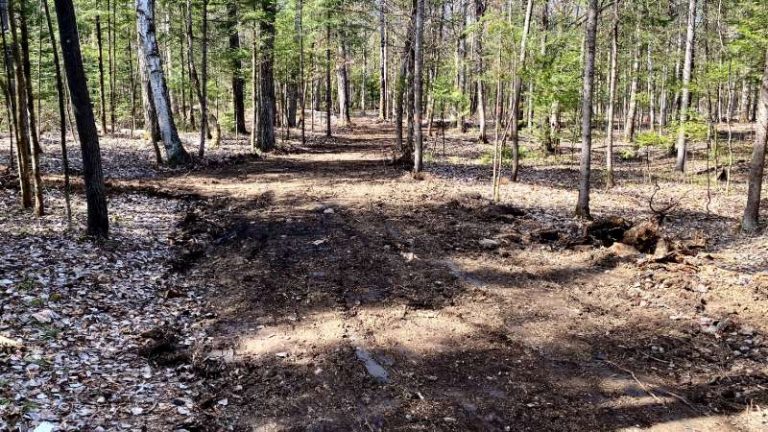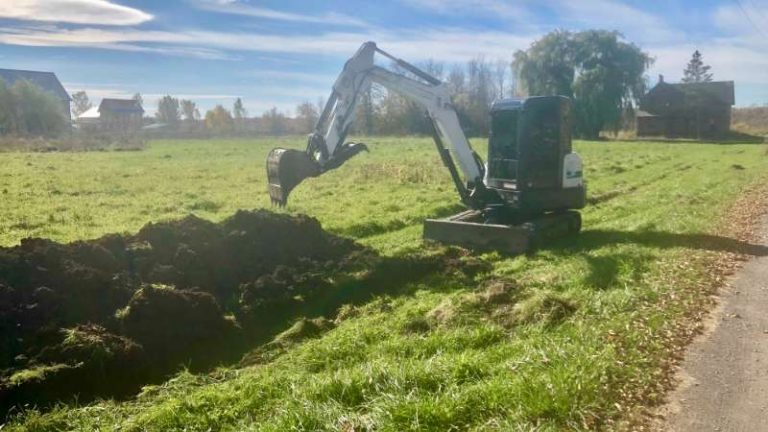Hiring a Landscape Contractor in Ottawa
Or any construction contractor for that matter!
If you’re reading this, then chances are you’re facing down the barrel of a pretty daunting task – you’re looking to hire a contractor, to perform work, on what might be your largest and most expensive asset. And although it’s not a task that should be taken too lightly, it doesn’t have to be scary.
As a general contractor, and now a landscape contractor, I’ve had the opportunity of hiring, and unfortunately firing, many different trades and sub contractors throughout my career. I’m fortunate to have learned a lot from my mentors, but some things were learned the hard way. Below is a basic list, of what I think should be considered when hiring any contractor for a residential project.
Before we dive in to that, it’s important to know, that every project will have its own unique set of challenges, and opportunities. One of these challenges or opportunities, is the human element. Who you work with, and how, will have a lot to do with the outcome of your project.
It’s fairly well established at this point in civilization that communication, and planning, can either make or break a project. Knowing from the get go, what you’re looking to accomplish, and being able to communicate it, will undoubtably increase the odds of your success. We’re fortunate to have access to a wide variety of resources that make that easier than ever. With tools like Houzz, Pinterest, Facebook, or Instagram, it’s fantastically easy to find photos or videos that help paint a picture of what you’re looking to accomplish.
I highly recommend establishing a rough idea of what you’re looking for, prior to approaching contractors. Knowing the basics of what you’re trying to accomplish, and what problems you’re looking to solve, are often first steps.
Once you’ve figured that out, meeting with a contractor and/or designer, is usually the next step. Together, a collaborative approach usually gets the best result. They will listen to your problem, or ideas for the project, and help to create a suitable plan that can be executed successfully.
Sounds great right? Now we move on to the somewhat daunting task of what to look for when you’re looking to actually hire those design, landscape, or construction professionals.
Skills
In the province of Ontario, and Ottawa specifically, the barriers to entry in non compulsory trades are quite low. Thus allowing nearly anyone to call themselves a ‘landscaper’ or ‘contractor’.
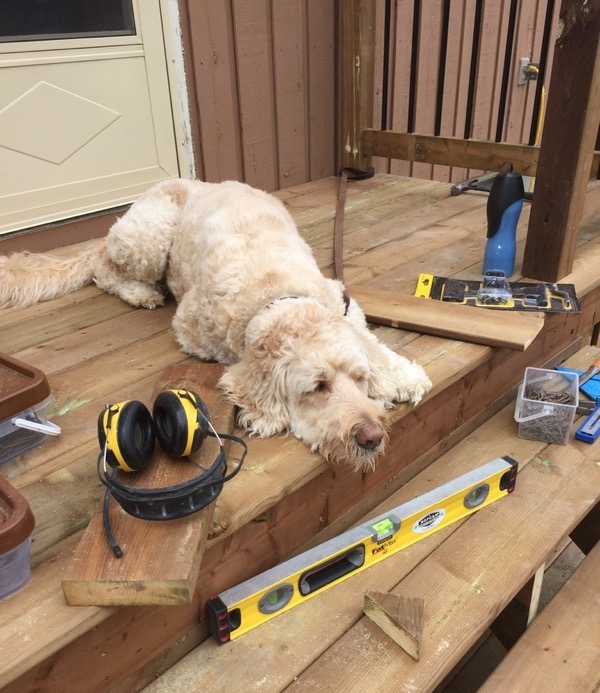
There are exceptions to this, in the licensed trades (electrical, plumbing, gas, hvac, septic) – but you need to confirm they are indeed qualified.
It’s important to understand if your contractor has experience with the project you’re considering tackling. While no two projects are ever alike, and every project presents new challenges, a good contractor will be able to tackle these challenges by drawing on their experience, and their ingenuity.
Another question is how they run their projects. A contractor with experience often has a pretty clear idea of how they’re going to tackle your project, and should be able to communicate it. Many things in construction are done in a specific order. For example, it wouldn’t make sense to build a house without first building a foundation. The same can be said for a multitude of tasks in any given project. Order matters.
One more point to consider, is what the project will look like while under construction. While visiting previous job sites is not always possible for privacy reasons, visiting a current project doesn’t usually present the same concerns.
The state of a job site (within reason), says a lot about a crew, and how they treat work. Litter and debris scattered all over the place shows a lack of care, and presents unnecessary risk. Good crews will make sure the job is reasonably clean, organized and safe, prior to heading home for the day. This is important because it limits the liability of everyone involved, makes for a safer, more productive, and often happier team if the jobs aren’t filthy when they arrive back the next day.
Equipment – batteries not included
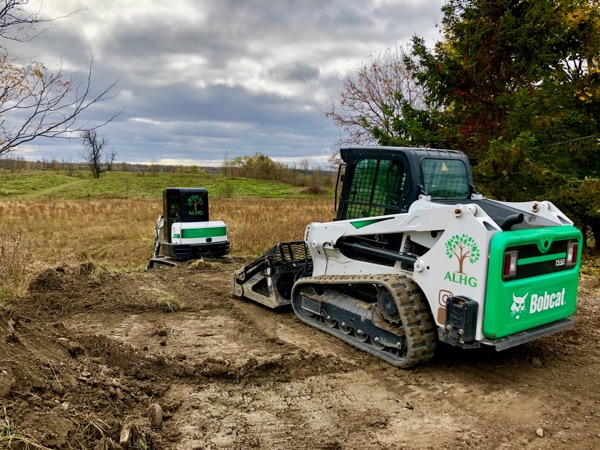
Does the contractor actually have the equipment needed to tackle the job safely and efficiently?
While no company can own every single specialized piece of equipment, you would expect your landscaper to own their own trucks, trailers, and small heavy equipment. Those who are in it for the long run, are not afraid to invest in the right equipment to tackle the job.
If your landscaper or contractor rents all of their equipment, it’s important to consider why. Do they have poor credit? Are they new to the business? Is this a short term gig? All of these things should make you pause and think.
While using rental equipment is at times necessary, a contractor that relies on it completely will often run in to delays if the rental company does not have the tool available, thus delaying your project.
Another important factor to consider is safety – rental equipment can sometimes mean inexperience with a specific piece of equipment. If the contractor has invested in the right equipment, it’s very likely they are familiar with it’s use, and its safe operation. After all – they spent their hard earned money on it.
The final note on equipment is the condition of it. If they own their own machines, are they well maintained? Do they leak oil or fuel? Are they in good repair? A contractor having equipment that is in good operating condition, minimizes the risk of downtime, and project delays.
Insurance – A sensible idea
Does your contractor carry insurance?
While there is no legal requirement in Ontario, to carry it, having liability and commercial auto insurance just makes sense. It protects both the contractor, and the you the client in the event something happens on your project.
Insurance limits vary from policy to policy, but a good rule of thumb for most residential projects is to ensure that your contractor carries a minimum of $2 million of liability insurance. This can, and should be verified in the form of an insurance certificate.
WSIB – the law
Put simply, in Ontario, any contractor with employees is required to be registered, and pay premiums to the Workplace Safety and Insurance Board (WSIB).
This protects you the client, as well as the employee in the unlikely event of a workplace accident.
It’s law, and it’s important to verify your contractor is in compliance, otherwise you the property owner can be liable for any injuries that may occur on your property.
Financials – Aka – The Money
It doesn’t take much to find a story about a homeowner who was ripped off after giving a contractor a massive deposit.
The unfortunate truth is that it happens all too often when people don’t properly research or interview whomever they’re hiring. The flip side is, that it’s also not too uncommon for clients to rip off contractors.
Money makes people funny sometimes.
It’s no secret that good contractors and building professionals are busier than ever these days, and that most companies tend to book a fair ways in advance. In order to secure a slot, it is absolutely not uncommon for them to require a deposit or booking fee. This is a signal to a contractor that you are serious enough about the project to put your money down. In return, they book a period of time in their schedule to dedicate to your project.
Unfortunately there is no standard deposit. Every company and project is different. On smaller jobs, it’s not uncommon to have to pay 50% or more up front. The contractor must purchase any materials, and deploy people and equipment to site. The deposit pays for this, and offsets the risk of a client not paying.
On larger projects, payment schedules or ‘progress payments’ are quite common. Typically these are tied to project milestones. The idea being that neither the client or contractor hold all the cards. If the contractor doesn’t hold up their end of the deal, the client doesn’t pay the next milestone. If the client decides not to make a payment, the work stops.
How much, or how often these payments are, will vary from job to job, but your contractor should be able to explain the payment schedule should you have any questions.
People Skills – how to win friends and influence people
I’ve saved arguably the most important for last here. As I mentioned in the beginning of the article, (and if you’ve read the whole thing, thanks for staying with me!) who you work with, and how, will have a lot to do with the outcome of your project.
Once you’ve checked all the other qualification items, making sure you choose a contractor that you connect with, and trust, is likely one of the most important aspects of success.
Undoubtably, there will be challenges in almost every project. Construction can at times be unpredictable, and involve a lot of decisions from all parties. Weather, material suppliers, labour shortages, and trade disputes can all play a factor. What can and will separate a success from a failure, is how these challenges are dealt with, and ultimately how your contractor communicates throughout the entire project. Bad news early, is good news. It usually allows for a change of plan, and thus the project to continue. Lack of communication however can lead to unpleasant surprises, extra stress, and insufficient time to make decisions. Ultimately this leaves everyone frustrated.
Closing Thoughts
One final thought – Construction, all types really, is ultimately the art of managing people, products, the weather, and a whole host of other variables. What you want, is someone on your side who can do this effectively. While trust is required for this transaction, some paperwork is as well. No work should ever begin without a written contract, detailing the specifics of the project.
I sincerely hope this article is helpful, and if it was, I ask that you share it amongst your friends, or to anyone who might need it.
Happy Landscaping!
Alan


